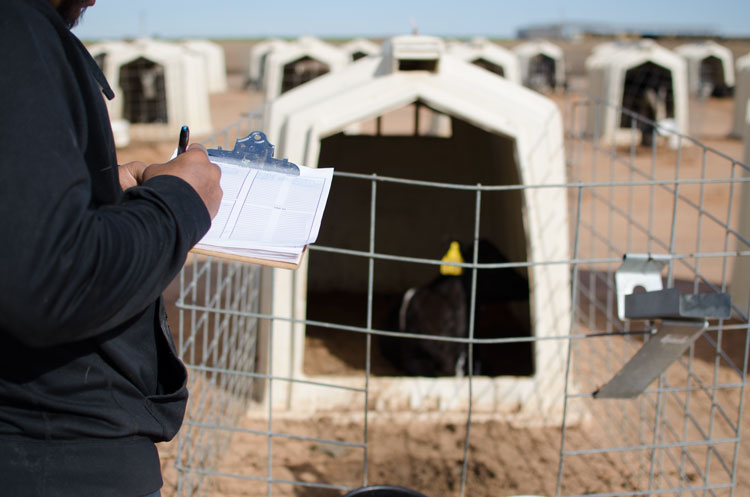
Nearly every dairy farm features some type of data collection or herd management software. It can range from rumination or activity monitors to simple herd tracking with PCDART or Dairy Comp 305. Data overload anyone? Even on farms that keep “simple” paper records, the available information for decision-making can be overwhelming.
Most any dairy farmer would also agree that having that data doesn’t mean a quick resolution to an issue on the farm. Take for example a sudden spike in somatic cell count across the herd. A number of factors could be to blame from a change in the milking procedure to a new pathogen in the herd or a failure to re-bed the lactating cow pens in a timely manner.
Data is only as good as our ability to utilize it in the process of making decisions on the dairy farm, and that is why Virginia Tech’s Dave Winston suggests keeping a dairy management diary to monitor changes on the farm. In a recent Virginia Tech extension Dairy Pipeline article, Winston explained that the addition of this type of data collection could act as a compass in determining what causes changes on farm.
“A person can use the information to evaluate success or failure of changes, monitor progress toward reaching goals, and aid in troubleshooting herd problems,” he said.
The options for record keeping of this type are as wide as those for data collection. Anything from a notebook to an Excel document would work. For those comfortable working in Excel, Winston suggests that the searching and sorting features in the program can be especially helpful in pinpointing pertinent information.
The herd’s veterinarian, nutritionist, banker, or any type of consultant can help identify what information would be the best to record. Employee hire dates, tweaking feed ingredients, or dates of re-bedding would be just a few examples.
Whatever method is used, it’s important to note that as changes are made, whether planned or not, they can result in huge impacts on the herd. Having a record of these changes is a great first step toward following through on successes, repairing issues, and staying ahead of the constant management circus that can be dairy farm management.
The next webinar is Monday, February 13, 2017, at noon CST
“FARM in 2017"
by Emily Yeiser Stepp, Director, FARM Animal Care; Ryan Bennett, Senior Director, Industry & Environmental Affairs; and Jamie Jonker, Vice President, Sustainability & Scientific Affairs.
All three are with the National Milk Producers Federation
Farmers Assuring Responsible Management (FARM) is dairy’s comprehensive quality assurance program encompassing over 98 percent of America’s milk supply. Join FARM’s Emily Yeiser Stepp, Ryan Bennett, and Jamie Jonker as they give an overview on animal care, antibiotic, and environmental stewardship.
Register here for all webinars.

The author is an associate editor. She covers feeding and nutrition, youth activities and heads up the World Dairy Expo Supplement. Maggie was raised on a 150-cow dairy near Valley Center, Kansas, and graduated from Kansas State University with degrees in agricultural communications and animal sciences.







